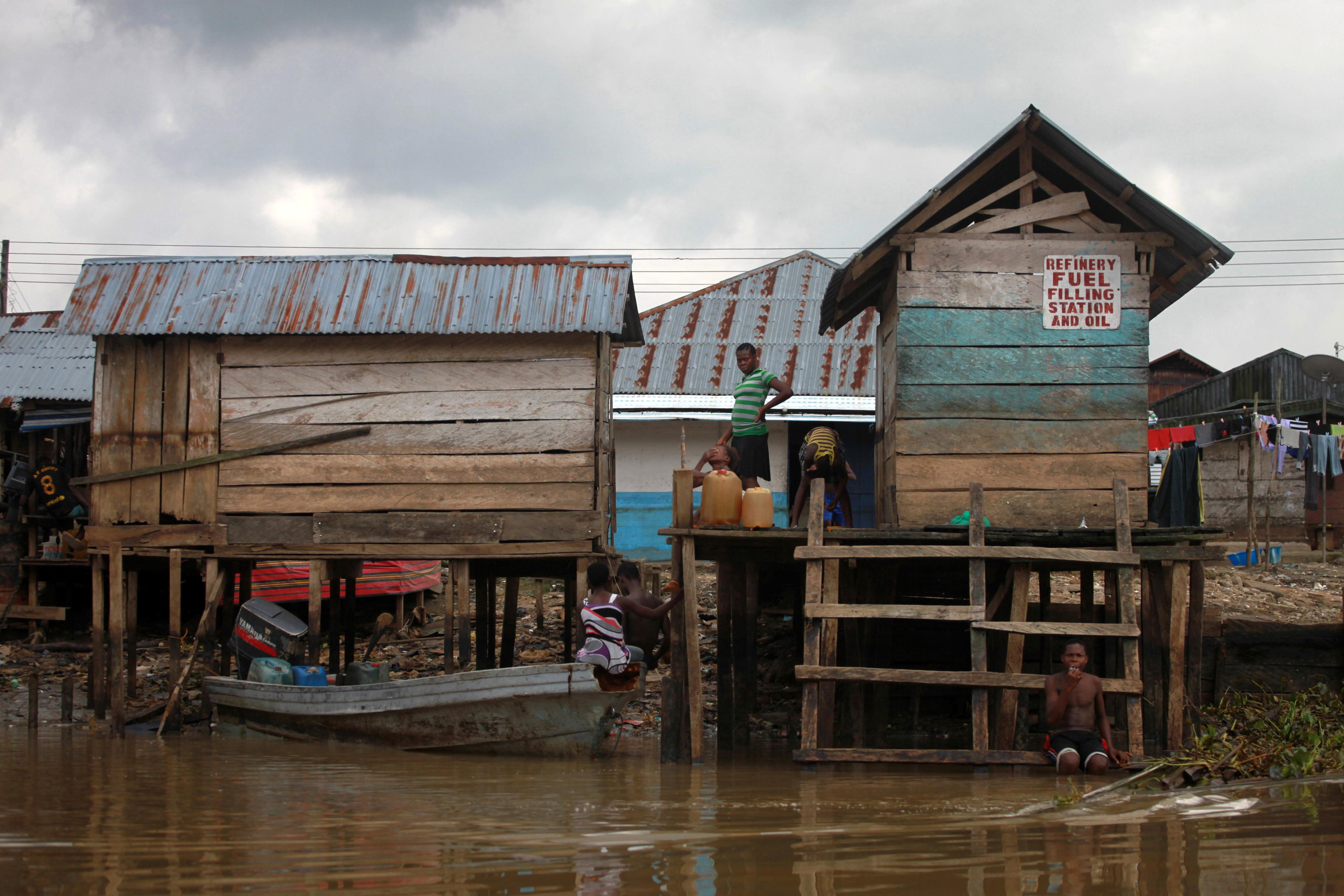Oil and fuel vendors in a village in the Niger delta
Copyright© Oil bunkerers, Akintunde Akinleye, CC BY-NC 2.0
Economic situation High dependency on oil
The main export commodity is crude oil. There is a lack of refineries within the country, which is leading to regular fuel shortages.
In 2022, the economy grew by 3.3 per cent. The World Bank expects a growth rate of 3.3 per cent again for 2024, and a rate of 3.7 per cent for 2025.
After he assumed office in the first half of 2023, President Bola Tinubu launched some initial reforms to stabilise the budget and boost the economy. They include the elimination of the high petrol subsidies and the decision to let the exchange rate of the Naira float. Previously, the rate had been fixed by the government. Targeted cash transfers are intended to cushion the impact of these measures on particularly poor and vulnerable households. However, the government has not yet taken effective steps to mitigate the impact of the sharp rise in the cost of living and to lower inflation, for instance through tighter monetary and fiscal policies, a higher minimum wage or the expansion of social protection systems (see also Social situation).
Fostering agriculture, improving the business climate
The development plans pursued by the government focus on economic diversification and an improved business climate. Another important goal that the government has set itself is the modernisation and expansion of the agricultural sector in order to meet domestic demand for food and create additional jobs. However, so far there has been a lack of political commitment to systematically implement these strategies. The most recent Sustainable Development Report showed that significant or major challenges remain for Nigeria on 13 of the 17 SDGs.
In the recent past, there has been major investment in the development and modernisation of roads, railway lines, ports, airport terminals, power grids, pipelines and dams. However, in many parts of the country, the infrastructure is still in poor condition, educational attainment is low, there is a lack of legal certainty, people have poor access to financial services, corruption is pervasive and the security situation is unstable. All this is preventing the economy from developing more dynamically, and it deters investors from stepping up their involvement.
As at: 02/02/2024
